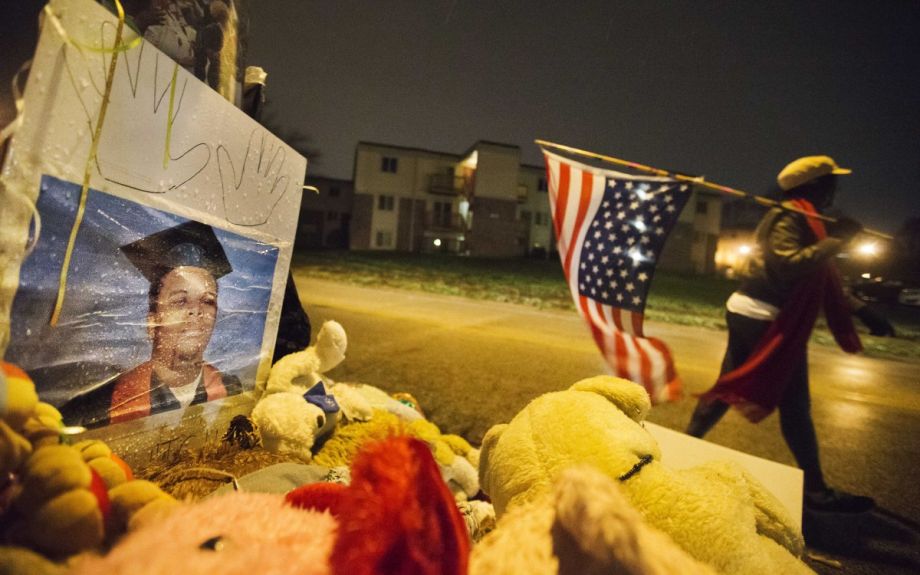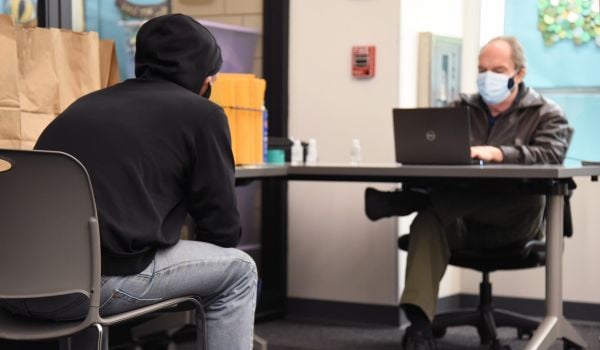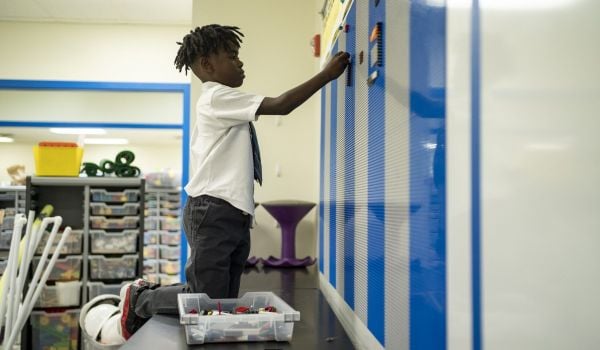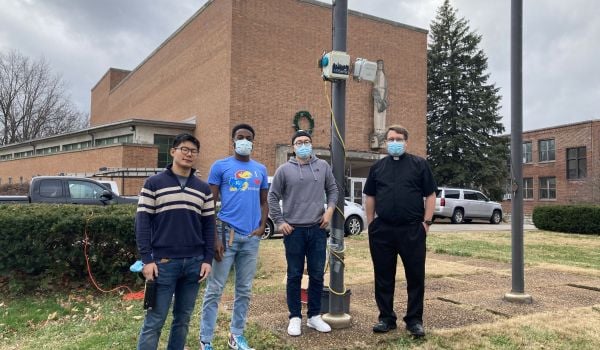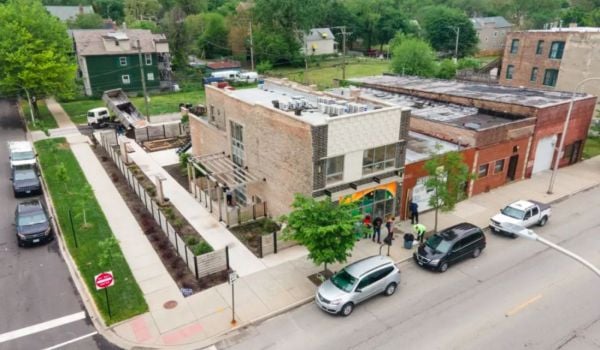Four years after Michael Brown’s death at the hands of a white police officer in the St. Louis suburb of Ferguson, Mo., residents in the region are showing a thirst for change and progress that the current crop of elected officials has yet to quench. So a new crop of leaders is stepping up to take their place.
Michael Brown’s mother, Lezley McSpadden, recently announced her candidacy for Ferguson City Council. Her announcement came on the heels of St. Louis County voters, a majority of whom are white, overwhelmingly choosing Wesley Bell, a former public defender and criminal justice reform activist, to oust a 28-year incumbent for St. Louis County prosecutor.
Bell approaches his new position with the recognition that new conversations are taking place around the region, conversations about power and privilege, but there will be much work to do once he takes office to take those conversations and turn them into real change. (After winning the primary election against the incumbent, he is unopposed in this fall’s general election.)
“We need those constructive conversations. We need to have those uncomfortable conversations. That’s the only way we can push the ball forward. Three years ago, no one knew what privilege was,” Bell says.
A new report provides a sense of just exactly how far the ball still has to go. The report details progress, or the lack thereof, on the calls to action from the Ferguson Commission, an independent group convened after Michael Brown’s death in 2014 by Missouri Governor Jay Nixon to conduct a “thorough, wide-ranging and unflinching study of the social and economic conditions that impede progress, equality and safety in the St. Louis region.”
Out of 47 “priority calls to action” from the Ferguson Commission, only five have seen significant progress, according to the report. The calls to action are grouped into four main thematic areas: “Justice for All,” “Youth at the Center,” “Opportunity to Thrive,” and “Racial Equity.” Of those, the “Justice for All” area, which focuses on addressing the roots of disparity in the criminal justice system, saw the least movement.
“Frustrating,” says Yinka Faleti, lead catalyst for Forward through Ferguson.
The report describes itself as a “people’s report.” To ensure that the document prompts public conversations, the Commission has organized three town hall meetings, the first of which will be held September 6.
“Michael Brown’s death should have been a clarion call to the whole region to leaders in the region, to government leaders, to business leaders, to civic leaders, to the people in the region, to the state government, because much of this work needs to be done at the state level,” says Faleti, who also has this fall’s mid-term elections on the mind.
Meanwhile, at the local level, Bell recognizes that his work starts with interrogating his office’s practices, especially its core practice: whom it prosecutes and why.
“First and foremost, what are we charging? And, does it have an impact on poor people or people of color?” Bell says. “We need to keep that data so that we have a screenshot of what’s going on and make sure that the justice system is working for everyone.”
Data and transparency, he hopes, will renew trust in an office like many others around the country that have failed time and again to hold law enforcement colleagues accountable for killings of unarmed black residents.
“We have a deficit of trust currently in that, and when you don’t have trust, when you don’t have credibility in a justice system, you don’t have a justice system,” says Bell.
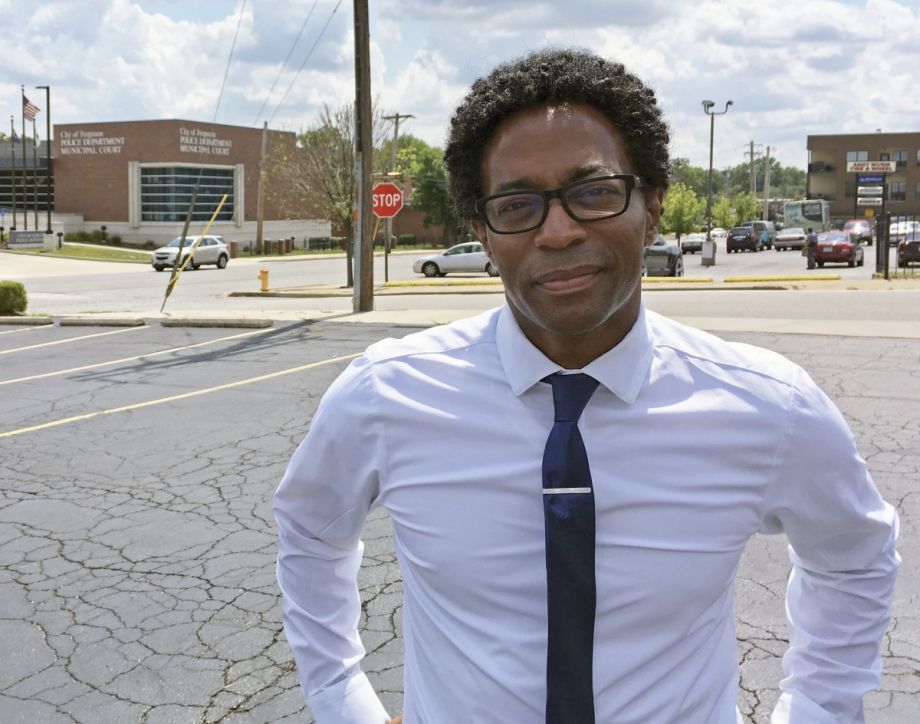
In this Aug. 8, 2018 photo, Wesley Bell stands outside the Ferguson, Mo., police headquarters a day after he defeated longtime St. Louis County prosecutor Bob McCulloch in the Democratic primary. Bell's 57 percent to 43 percent victory over McCulloch, a white prosecutor first elected in 1990, is the latest win for the Black Lives Matter movement, which has increasingly shifted from protest to local politics in recent years. Voters concerned with the killing of unarmed black people by police have made their voices heard from Ferguson to Cleveland to Chicago. (AP Photo/Jim Salter, File)
Faleti, a West Point graduate and attorney, once worked in St. Louis County prosecutor’s office himself, but left seeking a greater sense of mission.
“There was a particular defendant in 2011, and I saw him again in 2013,” Faleti remembers. “He had gotten probation. In 2013 he violated his probation and he ended up back in court. It wasn’t the first time, but it made me rethink what I was doing. On the back end of everything, the crime had occurred, the victim had already been victimized, but I couldn’t undo what had been done, and I began to get the sense that I was too late for the victim but also too late for the defendant.”
Faleti contrasts that with his work today to understanding how both defendants and victims end up in the positions where they end up in the criminal justice system — or in his words, how babies end up thrown into a lake.
“This work at Forward through Ferguson is about figuring out the root cause and why are the babies being thrown in the water in the first place,” he says. “What is causing these inequities in the first place? Why are educational disparities so large between this group of people and that one, life expectancy disparities between this zip code and that one?”
Forward Through Ferguson also launched an action plan, the #STL39 Initiative, in April, to make St. Louis a city in which race “doesn’t determine life outcomes” by 2039. The focus of the plan is on equity, but some still confuse diversity and equality with racial equity, Faleti says.
“Many in the business community have a misunderstanding of racial equity — they confuse it with inclusion and diversity,” says Faleti. “Those are buzzwords and they are very important, but they’re not equity. Others equate it with equality, but equality is not equity. So, there is work to be done for folks to be understanding what does it actually mean when we say ‘racially equitable systems of politics.’”
Health Equity Works is one of the organizations Faleti says is leading the way on bringing a racial equity lens to its work around health in the region.
“Equity is about ensuring that folks have equitable access to opportunities to flourish, and that means changing access to systems and structures,” says Dr. Jason Purnell, of Health Equity Works. “Diversity can often feel somewhat cosmetic, and if there’s a sufficient count of a certain group of people, then people feel satisfied that they’ve reached diversity.”
Health Equity Works published a report in 2014 describing health and life expectancy disparities in the region and why those differences affect the community as a whole. The study found that neighborhoods only a few miles apart registered an 18-year difference in life expectancy, based on race. St. Louis is highly segregated, and communities with large African-American populations showed high concentrations of poverty and ill health. The study found potential cost savings, such as eliminating racial and ethnic differences in chronic diseases such as heart disease, diabetes and cancer, which St. Louis could save $65 million.
Equity, Purnell explains, is about recognizing the need to invest differently based on existing, entrenched disparities.
“Our work has always been around increasing that access to equitable opportunity, and that means focusing on those who have the most vulnerabilities and not just looking at them as a cross-sectional snapshot in time but understanding the structural and historical ways they have been disadvantaged, and trying to address that,” says Purnell.
Purnell and Faleti are both realistic about the challenges ahead, but both say they are hopeful.
“All eyes were on Ferguson after [Michael Brown’s death],” Faleti says, “and we know that eyes are still on St. Louis to see how we as a region deal with this and how we come out of this.”
UPDATE: An earlier version of this article linked to the incorrect Ferguson Commission follow-up report. We’ve corrected the link.
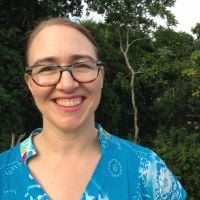
Zoe Sullivan is a multimedia journalist and visual artist with experience on the U.S. Gulf Coast, Argentina, Brazil, and Kenya. Her radio work has appeared on outlets such as BBC, Marketplace, Radio France International, Free Speech Radio News and DW. Her writing has appeared on outlets such as The Guardian, Al Jazeera America and The Crisis.
Follow Zoe .(JavaScript must be enabled to view this email address)

